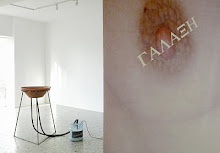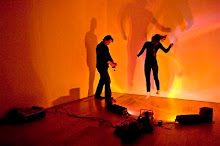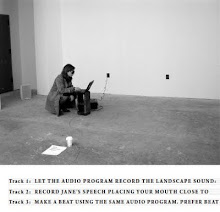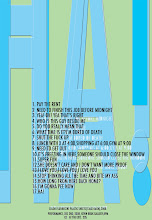Space Is Not Territory
Now that some have found a way to territorialize their concept of 'fight' with the hectic maneuvering of a closed group, and call social space the property of a door that allows them to determine who is in and who is out. Now that the only concern remains the never-ending search for new issues and new topics of investigation creating an eternal state of non-action; the question is if there comes a time when territories are created only to be immediately deterritorialized and reterritorialized, and if there will be moments where space expands beyond the determination of a life-style.
As if we talk too much but we don't do much.
We talk about life, our own life, and how to organize with others, and the talking somehow always starts with the question of the value of our own life but not with the question of how the decision to live our life can change others’ way of living.
Can life be livable?
One’s decision to live is not at issue here or even the starting point of this text. I would rather bring attention to the ambitious drive of inhabiting a space for it to become livable, through unpredictable ways of being, using, resourcing, and varieties of gatherings, all hubs without having to incorporate the Cartesian duality of an inside and outside.
Can we get unconcerned with the out or in?
Walking on the same street with others next to us doesn't make us listen to them. To find a place to gather doesn't mean we found each other. It is as if our relationship we foster with history is merely accumulative, and that this suffices in a city that legitimizes any action, but if legitimization is actually chained to specific action, then all we have is absence. A formulaic distancing is occurring that is nothing else but a mere coincidence. Very selectively we have studied the struggles of others, and we seek to find refuge in the generic specificity of a history of images, opinions and comments by ignoring to consider the significance of experiences, our own experiences and how to talk about them. Isn't it the discourse with others that creates language? How can we create language when we communicate our thoughts only based on what is already written and what we have already seen? Why do we always assume that every time we talk we communicate language or make something visible? The denial of the vulnerability of speech is the very process to pacification. The continuation of conferences, events, and screenings within the institutional frameworks and under the conditions we are opposed to but insist not to speak out against is part of a process of social mutation. To be the constant spectators of the history we create is the most painful of all. Is this a form of self-policing?
Is form self-policing?
To walk and be conscious of others walking with you and to do moments of living is resistance. Action is when bodies self-govern to be present and to communicate, sliding beyond the urgencies to either create or to be allowed to use fixated territories in totalitarian capitalism. When we act in disregard of any feeling of professional responsibility or entitlement, ignoring the predetermined sense of knowing the one and only truth, then we meet, and then we talk, and then we have space.
Georgia Sagri
New York, Spring, 2013
For Cara Benedetto, Diego Singh, Whitney Claflin and
Pati Hertling at "Le Potage de Madame Zazouf".





































